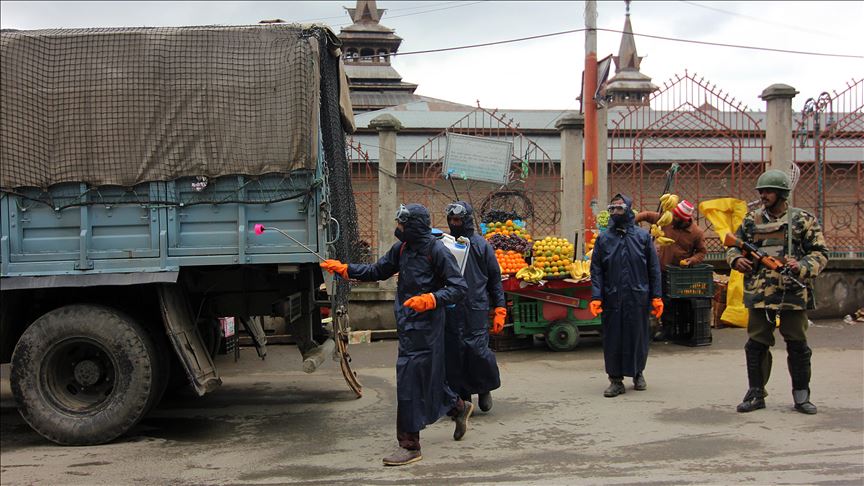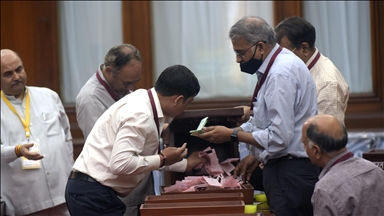COVID-19 in Kashmir: ‘Infection seeping in community’
Abysmally low testing has put Indian-administered Kashmir on edge awaiting catastrophe, say doctors in the region

SRINAGAR, Jammu and Kashmir
As the novel coronavirus or COVID-19 pandemic is spreading rapidly across the Indian-administered Jammu and Kashmir, health experts in the region fear the disease has seeped in the community.
They are pushing for aggressive mass testing to identify asymptomatic cases to save the region from any catastrophe.
While the region reported fourth death on Friday, the infected cases have also surged to 184, although, experts believe the testing rate is still abysmally low. So far less than 5% of people tested for the infection, according to medical experts.
Official data mentions that 60,000 people have been kept under observation and in quarantine. But only 2,100 tests have been conducted, in which 184 people have tested positive, in the region home to around 8 million people.
Speaking to Anadolu Agency, health workers battling the pandemic said there has been a constant increase in the number of people kept under observation. But the number of actual testing is very low.
Suhail Naik, president of the Doctors Association of Kashmir, complains that while government and private healthcare facilities are working together elsewhere in India, no such system is in place in the region.
He said that private labs in the region are required to send samples collected from the human body to the central laboratory in the Indian capital New Delhi, which is impossible due to the absence of transportation. Currently, just four government-owned laboratories are operating for testing samples related to COVID-19.
“A few dozens of tests are taking place right now per day which will not help. We need more laboratories, machines and testing kits. It is just testing, testing and testing, that will save people,” said Dr. Naik.
Cases with no travel history detected
Experts in the region maintain that there are enough indicators that the pandemic has seeped in the community.
The death of COVID-19 patient on Wednesday in the region, a 61-year old woman form Udhampur district did not have a travel history. A chronic arthritis patient, she had caught infection locally.
Dr. Nisar-ul-Hassan, a professor of medicine at Srinagar-based government medical college said it was imperative to go for rapid mass testing, as there are enough indicators that the virus has arrived in the community.
“If at this point, we do not take healthcare measures be it fast testing, mass sampling and segregation of infected people- it will bring a disaster for the region,” he said.
So far, the government had focused on testing people, who had travel history. But the doctor said the virus has traveled beyond people having travel history. The World Health Organization has also recommended for mass testing to stem the spread of the virus.
Although authorities have identified 47 hotspots and have enforced strict clampdown, the experts believe that in the absence of aggressive testing these measures would prove futile.
"We would not be counting numbers then, that is very sure," Mohammad Athar, a resident doctor, told Anadolu Agency. He said there could be scores of invisible or asymptomatic cases around, which need to be identified and segregated.
Anadolu Agency website contains only a portion of the news stories offered to subscribers in the AA News Broadcasting System (HAS), and in summarized form. Please contact us for subscription options.



